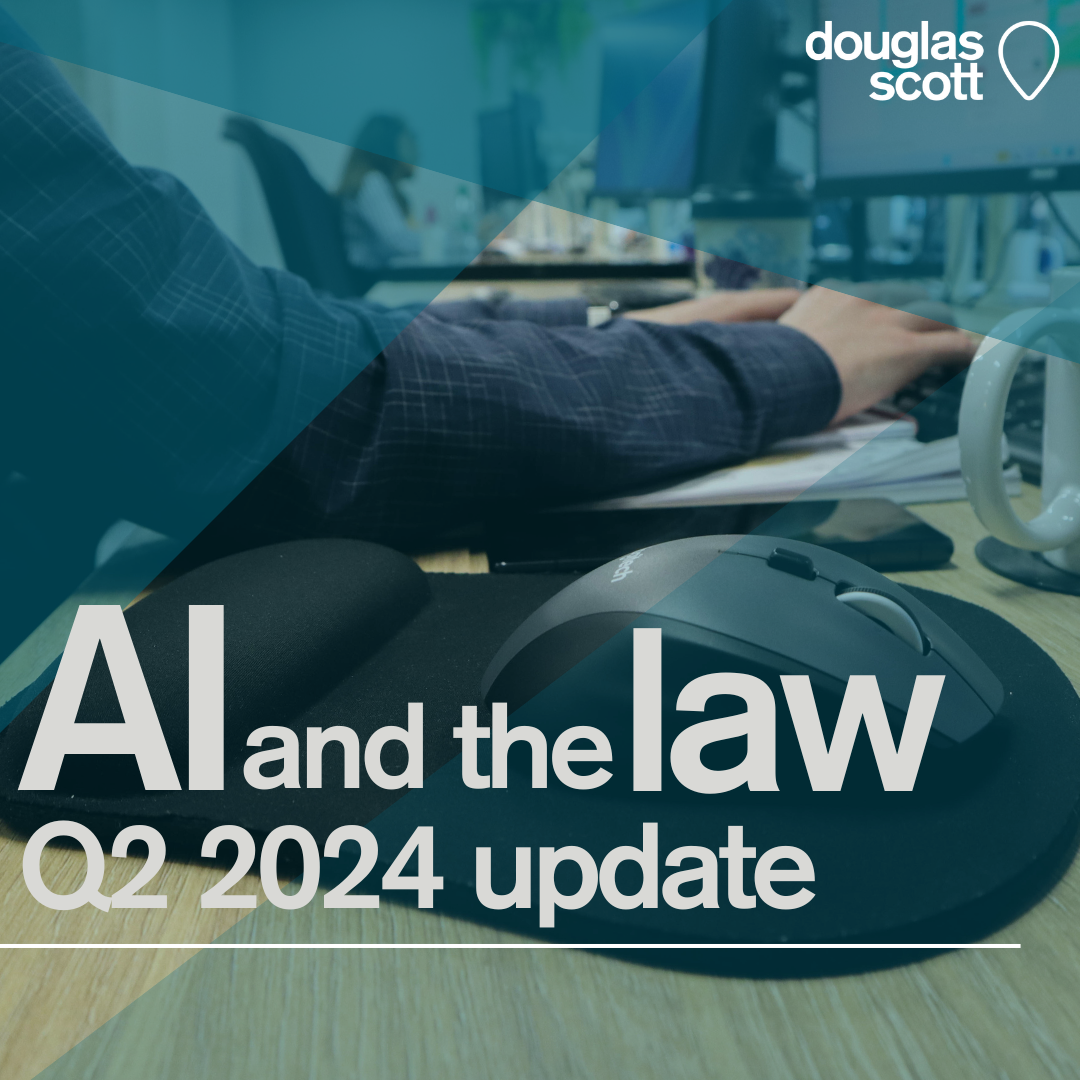A.I. & the Law - Q2 2024 update
Posted in Latest News on 4 Jun 2024

As artificial intelligence continues to make headlines, it continues to impact the legal workplace—and now, it’s impacting the legal recruitment marketplace.
A recent report from Big Four accountancy firm PwC found that lawyers with skills and experience with artificial intelligence are now getting a more significant salary premium than those without. It found that UK lawyers with these extra skills could get a 27% premium, which rose to 49% in America. Here at Douglas Scott, we have been following AI’s use in law for a while now, and this new development has some interesting repercussions.
The PwC report covers many areas regarding artificial intelligence use in the workplace, and found it is now frequently seen as a prerequisite in job adverts and job requirements. While, before now, it was merely making headlines for its use (notably the creation of an AI capable of passing the SQE), it’s now starting to affect those looking for new jobs as well. It makes sense – most law firms are now using AI in some form, whether to review and summarise documents, or even to help in research ahead of cases. As such, if law firms can employ people with experience with these systems, then it seems they’re willing to pay more to attract them. It was also interesting that the report found that those using AI to a greater degree are increasing their productivity nearly fivefold. This report will probably encourage more firms to use AI, especially as the technology develops and becomes more specialised for specific industries. Indeed, AI is changing what employers look for in an employee, with up to 25% of those skills changing and developing in light of its use.
These skills are also being developed among the next generation of lawyers, with law students and trainees using the technology. The LegalCheek website researched how law students use AI, and they found that one in five had used AI to help with writing job applications. However, some are keen to discourage the practice: pupils who wanted to study at the bar had to confirm that they hadn’t used AI in their answers. Another firm took a more balanced approach and offered advice and guidance to people looking to use it. They were quite happy for students to use AI when writing their answers, so long as they were using it to refine their thoughts and develop their thinking, rather than merely copying and pasting what the AI produced. Many educational establishments are now actively thinking about students using AI, so it makes sense for law firms to think about how they will respond to using AI in applications.
The use of artificial intelligence will continue to grow, especially in law, where it can potentially remove a lot of the legwork from legal jobs. Clearly, however, lawyers who use AI and have skills and experience with it are now more desirable than those who do not, and it will be interesting to see if this gulf grows bigger as AI becomes more prevalent.
Latest insight
-
What is the top priority for law firm leaders?
20 Jan 2025 -
How to make your 2025 Legal dreams come true!
13 Jan 2025 -
What poor mental health is costing firms...
13 Nov 2024 -
Beyond the surface: How law firms are quietly advancing social mobility
05 Nov 2024 -
Which training providers are doing the best out of the SQE?
29 Oct 2024